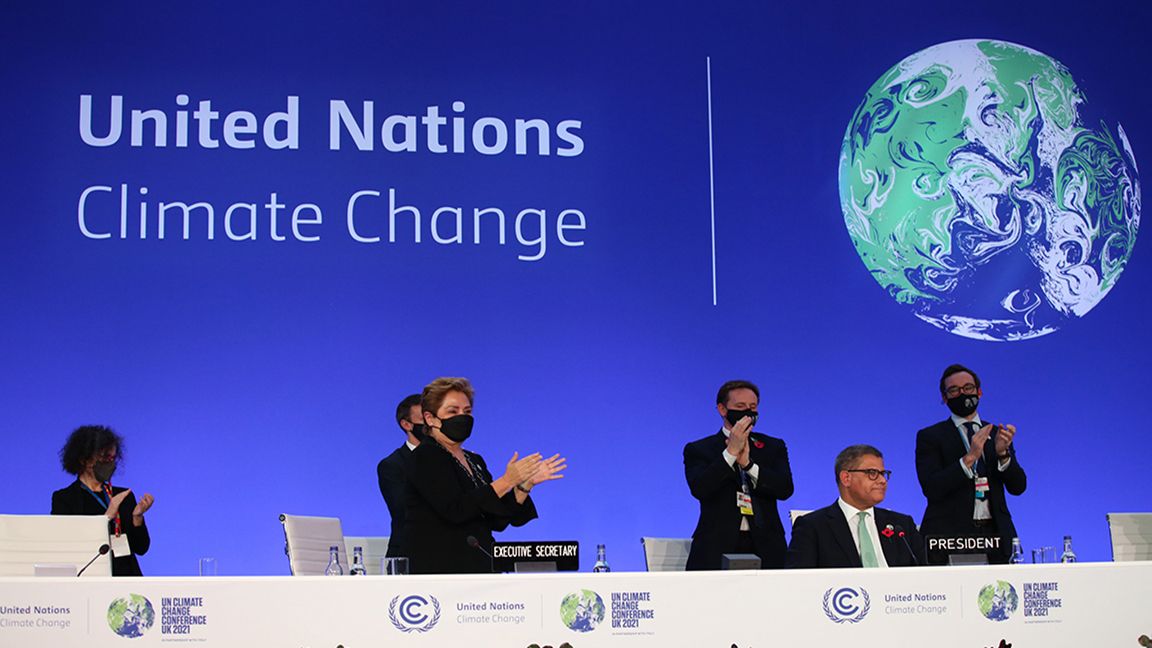For the first time in 30 years, the climate summit in Glasgow, Scotland put forth in the agreement the issue of fossil fuels and the need to reduce climate warming to only 1.5C. Although rich countries have pledged to up the ante, it remains to be seen if leaders of wealthy nations would keep their word. COP27 to be held for the first time in Africa will certainly play up the urgency of climate change to vulnerable countries and regions like Africa.
The greatest accomplishment of the recently-concluded climate summit of leaders in Glasgow, Scotland was that for the first time in 30 years, fossil fuels featured in a UN climate agreement, a landmark moment, even if there were last-minute watering down of language on coal.
Thus wrote Louise Boyle, senior climate correspondent of the Independent, that even as developed countries pledged to double finance by 2025 for poorer nations to help them adapt to climate impacts, the Glasgow pact also “requests” that countries revisit and strengthen 2030 climate plans by the end of 2022, which ups the ante as countries were previously not expected to present new emissions-cutting targets until 2025.
But the bad news is that “keeping 1.5C alive” the aspiration of the Paris Agreementto prevent catastrophic warming, “the goal is fast slipping out of reach, 1.5C is hanging by a thread” as declared by Chris Stark, chief executive of the Climate Change Committee, the UK’s independent adviser on the issue, Boyle noted.
“Current 2030 national pledges put the planet on a dangerous path to 2.4C warming by 2100. Cop26 also saw rich countries fall far short on the $100- billion annual climate finance for poorer nations that had been agreed to be delivered in 2020. The new projected delivery date is 2023, Boyle added.
2-week talking shop
Whether Cop26 will ultimately be judged as a two-week talking shop or the moment that the world turned the tide on planet-heating emissions depends on what happens next. Will national leaders return home and resolve to honor the promises they made together in Glasgow with concrete actions? UK Cop26 president Alok Sharma said 1.5C remains on the table “but its pulse is weak," adding that "it will only survive if we keep our promises, if we translate commitments into rapid action."
No other COP, not even the landmark event in Paris six years ago, received as much attention. A lot of this is to do with extreme climate impacts around the world that are impossible to ignore.
But there should also be much gratitude to the young people, activist groups, and Indigenous communities who tirelessly raise the climate crisis into the collective conscious.
In Glasgow it was just as common to hear a conversation about 1.5C, extreme weather, just transitions and green jobs in a pub, a supermarket, or a train station platform as it was in the cavernous plenary halls.
Keeping that level of public engagement will be critical in the year to come to hold leaders' feet to the fire and make sure they don't shirk their urgent responsibilities.
98 months to halve global emissions
"We have 98 months to halve global emissions," Shauna Aminath, environment minister for the low-lying Maldives, reminded leaders at Cop26 on the final day. "The difference between 1.5 and 2 degrees is a death sentence for us."
People participate in a protest rally during a global day of action on climate change in Glasgow on November 6, 2021, during the COP26 UN Climate Change Conference. (Getty)
COP27 in Africa
Now Cop26 has come to an end, Nature4Climate’s coalition lead James Lloyd, has been looking forward to COP27 and the issues likely to be the focus of the first COP to be staged in Africa.
Writing in The Independent he said: "African countries contribute only 4 percent to global emissions and yet they are among the worst hit by climate change.”
"The latest IPCC report indicates that the African continent is warming faster than the global average, which makes its countries more vulnerable to climate change’s devastating impacts, from extreme rainfall to drought to coastal flooding. Adapting to such impacts will therefore be a priority for African nations.”
"African communities, which account for 18 percent of the global population, count on an estimated 33 million smallholder farms which together are responsible for 70 per cent of the continent’s food supply.
Reducing countries’ and communities’ vulnerability to climate impacts requires urgent adaptation and finance to help developing countries absorb impacts and build resilient communities, with the meaningful engagement of indigenous peoples and their ancestral knowledge at the heart of this action."
Tags: #COP26inGlasgow, #fossilfuels, #COP27inAfrica, #keepingclimateat1.5C, #environment
